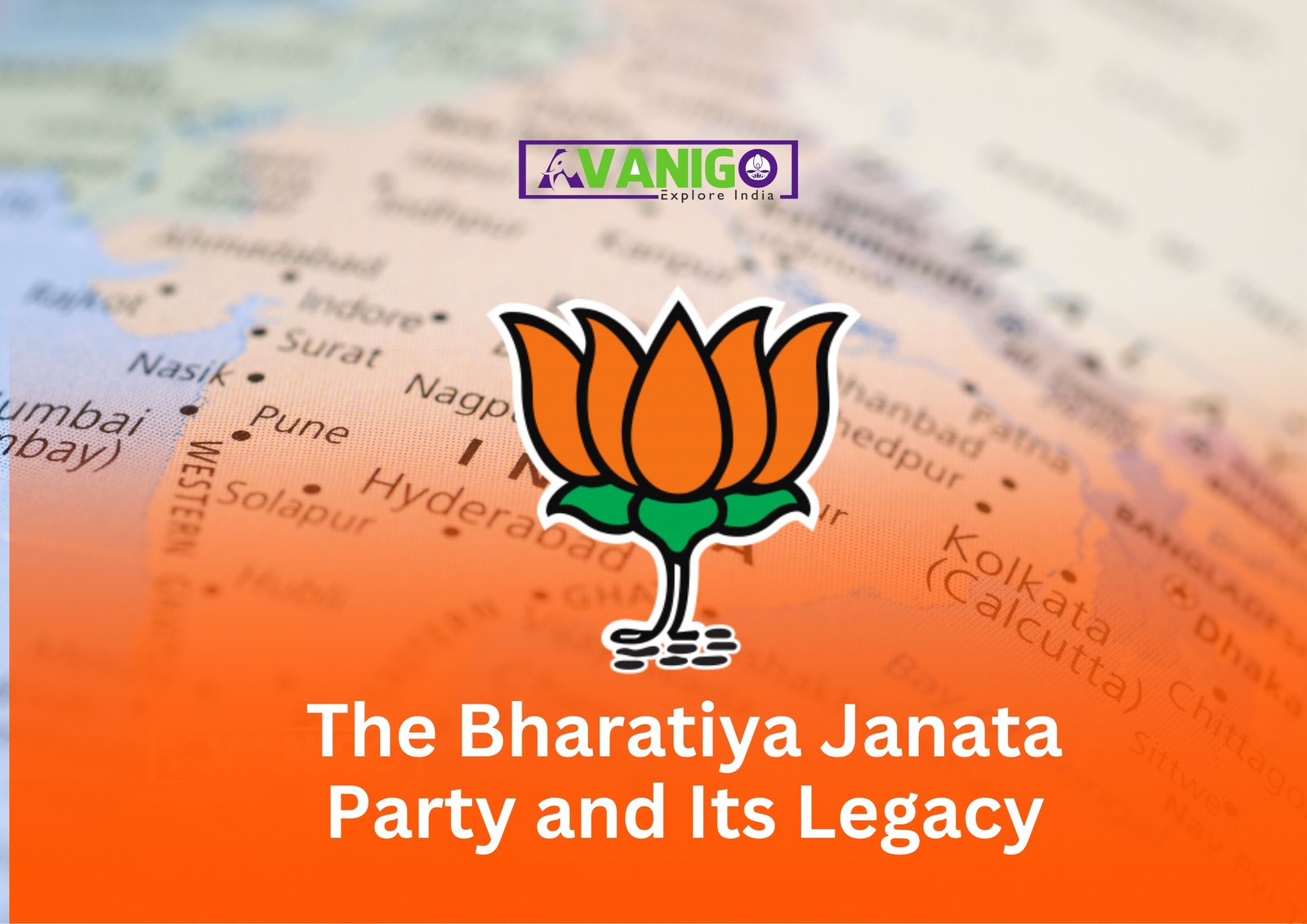 After India’s independence, the most popular and dominant party was Congress. They had their government for about 70 years during different times. But India also witnessed the rise on another party in these years. This part is Bharatiya Janata Party (BJP) that has gained much greater popularity than congress in the last decade. Its rise has been spectacular, owing to a rich history to the party’s core ideological tenets.
After India’s independence, the most popular and dominant party was Congress. They had their government for about 70 years during different times. But India also witnessed the rise on another party in these years. This part is Bharatiya Janata Party (BJP) that has gained much greater popularity than congress in the last decade. Its rise has been spectacular, owing to a rich history to the party’s core ideological tenets.
BJP began gaining momentum under the leadership of Atal Bihari Vajpayee and L. K. Advani and became the foremost challenger against the Congress. The party was able to successfully harness the rising tide of Hindu nationalism and the common man’s feelings for Hindutva and gained huge following in 1990s.
This Bharatiya Janata Party essay for students will help us to learn more about the party, its ideologies and policies in Indian economy.
Quick Navigation
BJP Founding & Ideology
The information about BJP history and achievements is quite intriguing for everyone, specially students and enthusiasts of political studies. The BJP traces its roots back to the Bharatiya Jana Sangh. It was a right-wing political party founded in 1951 by Syama Prasad Mookerjee. The Jana Sangh was a pro-Hindu, rightist establishment, opposing policies of the Indian National Congress.
In 1977, the Congress reign was defeated after Jana Sangh merged with other parties to form the Janata Party. They won in the general elections and formed the government. But soon the alliance was broken due to ideological differences. Therefore, former members of the Jana Sangh revived the party as Bharatiya Janata Party in 1980.
The ideology of Bharatiya Janata Party is Hindutva, which is a Hindu nationalist ideology started by the end of 19th century. The word Hindutva was coined for the first time by one of the Vinayak Damodar Savarkar. He described the notion of Hindutva, as the cultural, social, and political expression of the Hindu way of life.
The Hindutva philosophy is based on the belief that India is a Hindu nation, where identity, culture, and heritage are intertwined with Hinduism. This belief rejects the idea of India as a secular, multi-religious state and seeks to envision a Hindutva model of the nation.
The BJP has made Hindutva as the core of its political program. The party’s manifesto and policy strategies are deeply influenced by the Hindutva ideology. Their emphasis remains on the defense and promotion of Hindu interests, culture, and traditions. This stance has also created distress among religious minorities in the country such as the Muslims. They thought that Hindutva ideology and the BJP will make a Hindu-majority nation minorities will be discriminated on the basis of their religion.
Since its formation, the party has been under the influence founders of BJP India such as Syama Prasad Mookerjee and Deen Dayal Upadhyaya. For them, Hindutva was a source of peace and unity. Therefore, till now also the party has continued both to foster and propagate the ideology of Hindutva in their political goals. Importance of Kumkum and Sindoor in India Culture
BJP Major Leaders
After the founders of BJP India, we have seen many leaders who have helped in the growth of BJP as a national party. These leaders have nurtured the party with their full dedication from the early stages of their life. BJP leaders list is below to understand more about them:
Atal Bihari Vajpayee
The first Prime Minister of the party, Atal Bihari Vajpayee, has been respected as one of the most influential leaders in the history of the BJP. Vajpayee had moderate views, and he was aimed at widening the party’s appeal far beyond its traditional Hindu nationalist belief. His term as Prime Minister from 1998 to 2004 is seen as major success of BJP in elections. During his tenure, Vajpayee presented economic reforms and growth, as well as India attained a stronger stature in foreign affairs and nuclear capabilities.
Lal Krishna Advani
Lal Krishna Advani, Vajpayee’s long-time associate and former party president, was another leader of the party’s emergence. Advani was much focused with the party’s Hindutva-based “Ram Janmabhoomi movement”. It was instrumental in mobilizing the Hindu voter base and laid the foundation for the rise of the BJP in the 1990s. Advani’s passionate speeches and steadfast commitment to the cause of Hindutva helped to build a strong resolve for the party as the protector of the Hindu nation.
Narendra Modi
The recent and most transformative leader of the party is Narendra Modi. He is also the present Prime Minister of India. Modi’s rise to power in 2014 brought about a major change in the party’s political strategy. He was the Chief Minister of Gujrat for consecutively three times. Therefore, he presented his Gujrat Model during his rallies in 2014. His common man image to appealed to a wide section of the population. After 2014, Narendra Modi and BJP have further secured state elections, and achieved the greatest extent of political dominancy in the country.
There are other leaders such as Amit Shah, Rajnath Singh, and Yogi Adityanath who have shaped the party’s ideology, strategy, and political fortunes in the general and state elections.
Manmohan Singh, The Leader and Economist Who Transformed India
BJP Key Achievements
BJP achievements since 2014 have forever been written in the history of modern India. We have seen different BJP policies and programs that were bold and controversial. However, these Contribution of BJP to Indian politics are now well received by everyone. Some of these achievements are:
Economic Reforms and Growth
BJP economic policies and growth constituted one of the biggest items on the BJP agenda. Under Vajpayee and Modi, the party has pushed a range of pro-business policies. Some BJP achievements in Indian economy include loosening restrictions on FDI, introducing GST, and promoting initiatives like “Make in India” and “Digital India.” These measures have been conducive to actual economic growth, foreign investment, and sheer economic standing on the global stage.
Foreign Policy Advancements
There have been significant advances in foreign polies as well. During Vajpayee’s time, India underwent a nuclear test that put India into the nations with nuclear powers. The party has also asserted a proactive foreign policy, engaging in dialogue with nations such as the United States, Japan, and Israel.
Article 370 and the Reorganization of Jammu and Kashmir
One of the most controversial achievements of the BJP was the removal of Article 370. It provided special autonomous status to the state of Jammu and Kashmir. The BJP moved to revoke this article in 2019, and integrated the region with the rest of India. This move has been lauded by the supporters of the party. However, voices have emerged from the opposition citing that the BJP went against democratic principles and took the rights of the Kashmiri people.
Digital Push and Technological Advancements
The BJP has pushed technology and digital transformation. There have been various programs by the Modi government, including the Aadhaar biometric identification system, the Unified Payments Interface (UPI), and the Digital India program. These programs have modernized the digital infrastructure in the country. We have also moved forward with e-governance with these initiatives.
These achievements have established the BJP as a party that dared to take bold steps to reshape India.
Criticism and Challenges
The role of BJP in Indian democracy has been subject to huge criticism and opposition from different countries and within India. The party has been highly scrutinized for its Hindutva agenda. They are also blamed for alleged intolerance against religious minorities. Some of the criticism BJP constantly faces are:
Concerns over Democratic Backsliding
The opposition which is currently led by Congress often question BJP for its policies and actions. The opposition believes that decisions such as GST, removal of Article 370 have eroded India of its democracy. Difference between BJP and Congress have been observed in most of the decisions of the government. Congress also blames government for their alleged partiality with specific businessmen. However, they have not been able to prove such relationship between government and rich businessmen.
Allegations of Discrimination and Intolerance
The BJP has been very well associated with Hindu nationalist causes such as the Ram Janmabhoomi movement. But these reforms have been always seen as discriminating against the religious minorities of the country. The opposition calls Muslim community as their main target. The party’s policies have been blamed for creating communal tensions and an atmosphere of intolerance.
Opposition Voices and Debates
Political parties, civil society groups, and intellectual circles have joined hands to oppose the political dominance of the BJP. Opposition leaders have called the party out for undermining democratic norms, and pushing a divisive, Hindu-centric agenda. They always criticize BJP that they don’t follow India’s constitutional philosophy of secularism and pluralism.
Such criticisms are indeed challenges where the BJP must attempt to strike a balance between its ideological commitment and the demands of democracy. BJP has a vision to make India a superpower by 2049 and they will definitely face some challenges in their way. Sometimes, there are debates whether BJP will actually mould the future of India or not. But, that’s the beauty of democracy where both government and opposition should always check each other for the nation’s growth. Why is India called a Republic?
Conclusion
BJP achievements in Indian economy have been the subject of both applause and criticism. However, their permanent imprint on the political discourse of the country cannot be denied. The notion of a strong, united, and prosperous India has appealed greatly to millions of citizens. Also, the party has been reinventing itself according to the needs of the nation, which has contributed to the longevity of its success.
As India continues facing the challenges of the better governance and opportunities, the Bharatiya Janata Party should always be under scrutiny and debate. However, one thing that remains clear is that Bharatiya Janata Party facts will always be studied when remembering Hindutva ideology with “Sabka Sath, Sabka Vikas” notion.
Swetha is a Content Specialist, LinkedIn Branding and B2B Marketing Consultant. When she is not in the world of B2B, she researches the roots and beauty of Indian Culture and Traditions. She is the author of the book: 365 Days 365 Posts – The Guide to LinkedIn Personal Branding, available exclusively on Amazon. Connect with her on LinkedIn.
